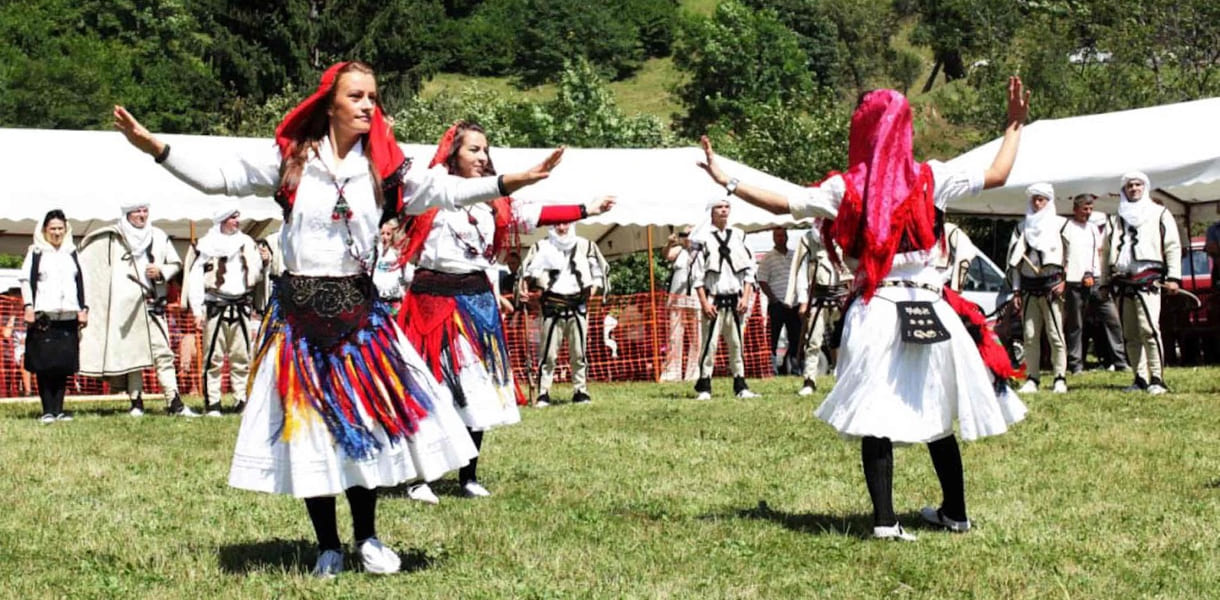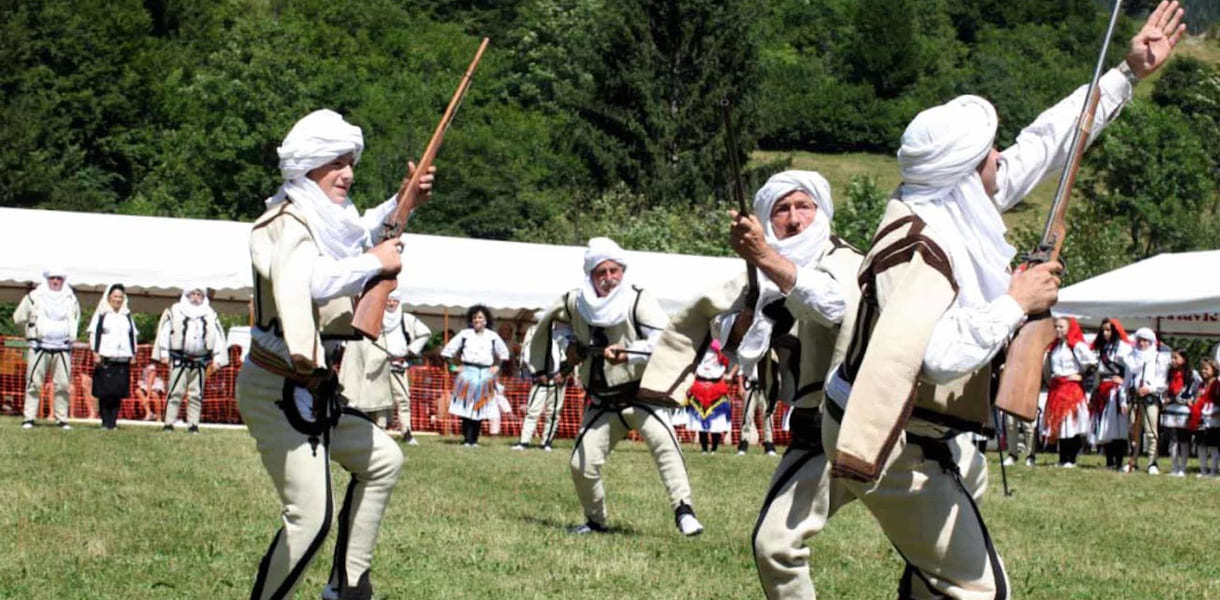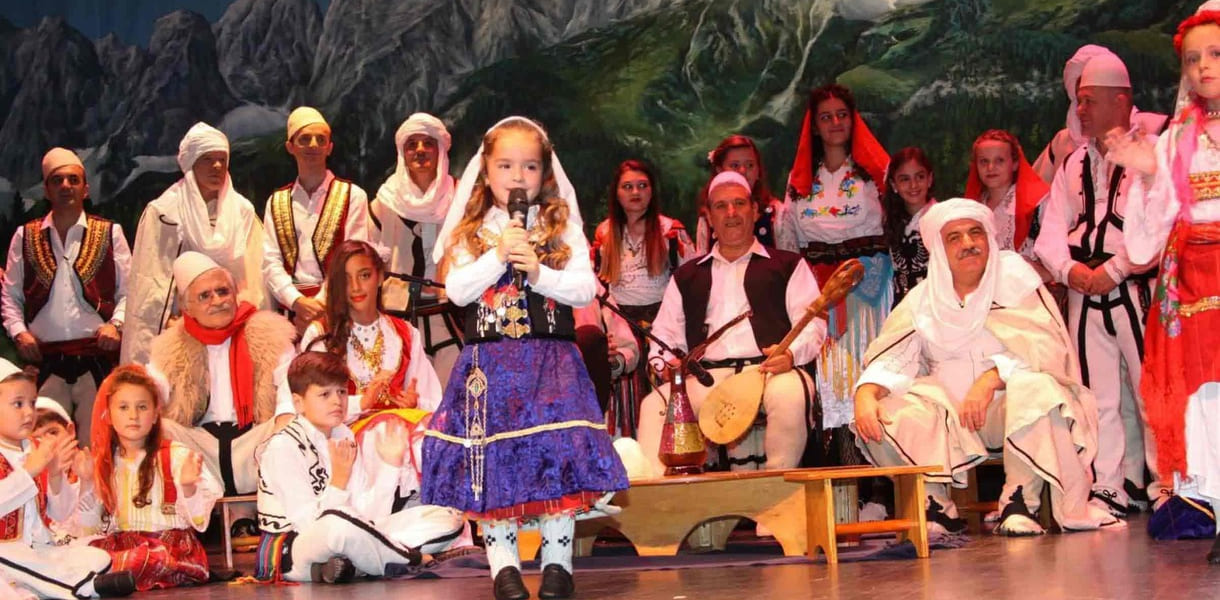Albanian folk music is extremely rich. It is expressed in a variety of ways, genres, instruments and dances. It includes northern Gheg traditions and southern Labs and Tosks. Albanian folk songs comprise heroic epics, lullabies, love songs, wedding music, work songs and more.
Epic songs in northern Albania include këngë trimash (songs of bravery), këngë kreshnikësh, ballads and maje krahi (cries). The most traditional form of epic poetry is called Rapsodi Kreshnike (Poems of Heroes). These epic poems are sung, accompanied by a lahuta, a one-stringed fiddle, çiftelia (a two string plucked instrument).

The music of southern Albania is polyphonic. Vlorë in the southwest has one of the most unique vocal traditions in the area, with four sections (taker, thrower, turner and drone) that combine to create a complex and emotionally cathartic melody.
South Albania is also known for funeral laments with a chorus and one to two soloists with overlapping, mournful voices. There is a prominent folk love song tradition in the south, in which performers use free rhythm and consonant harmonies, elaborated with ornamentation and melisma.
The Tosk people are known for ensembles consisting of violins, clarinets, llautë (a kind of lute) and def.
Southern instrumental music includes the sedate kaba, an ensemble-style form led by a clarinet or violin alongside accordions and llautës. The kaba is an improvised and melancholic style with melodies.




